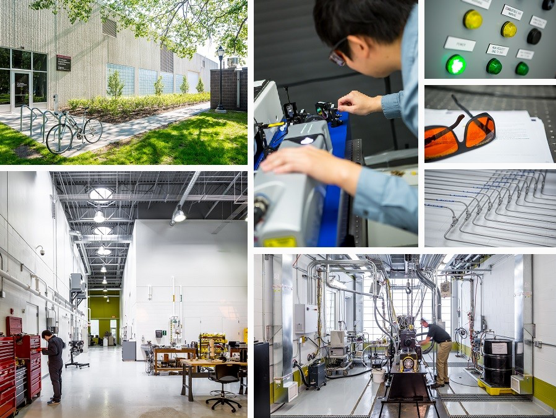Combustion & Engines
From the ground to the sky, 85% of the world's energy comes from combustion, engines, and propulsion!
Scientists in combustion and engines explore the complex physical and chemical systems that compose modern propulsion and power devices such as internal combustion engines, gas turbines, scramjets, and rocket engines. The research in this technical area focuses on the interactions between chemical/plasma energy conversion processes and complicated multiphase fluid dynamics in propulsion and power systems. The groups conduct both fundamental and applied research in combustion and propulsion, employing both experimental and computational approaches. Specific projects include the measurement and control of combustion emissions, catalyst/plasma-assisted fuel reforming, alternative fuels, first-principle modeling and simulation of combustion phenomena at realistic conditions, and propulsion control.
This highly interdisciplinary field promotes more powerful, more efficient, cleaner, and sustainable energy for propulsion and power generation. The department is focusing on the following areas:
- Clean and efficient use of liquid and gaseous hydrocarbon fuels
- Gas turbine combustion and emissions: the major energy source in the electrification age
- Plasma-assisted combustion for ultra-fast ignition, ultra-lean clean combustion, and compact fuel reforming
- High-pressure supercritical/transcritical evaporation, mixing, and combustion: “zero-carbon” sCO2 gas turbines, diesel engines, rocket engines, etc.
- High-speed/supersonic mixing and combustion: scramjets, detonation engines, etc.
- Advanced propulsion control
- Hybridization and optimization of propulsion systems: hydraulic or electric hybrids, fuel cells, etc.
We are home to the 6,000-square-foot of the Thomas E. Murphy Engine Research Lab (MERL), which opened in fall 2013. This lab features two transient double-ended dynamometer test cells equipped with state-of-the-art instruments and control systems. This enables us to expand our research to include alternative fuels, drive-cycle testing and fundamental combustion research.

Take a look around our labs.
CRFEL
MERL
